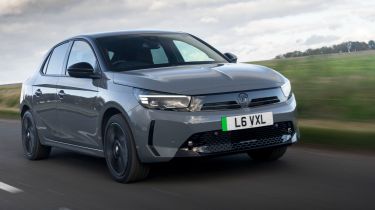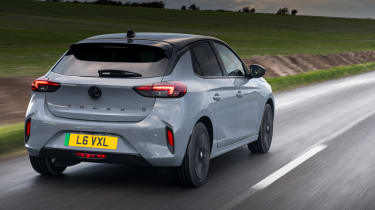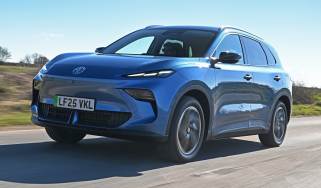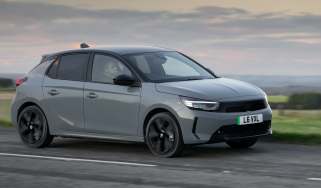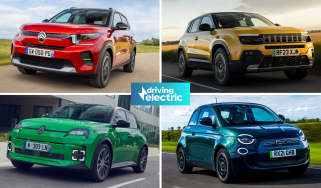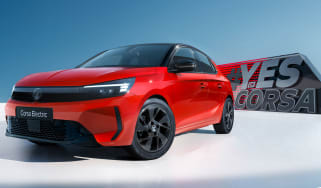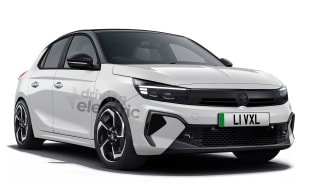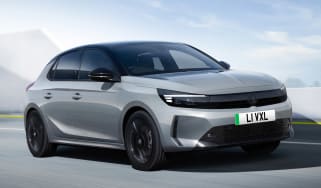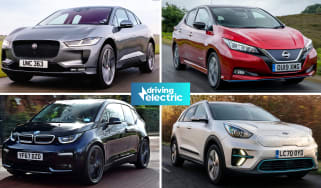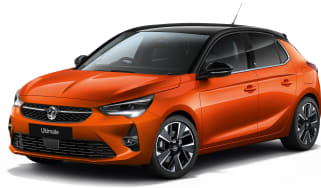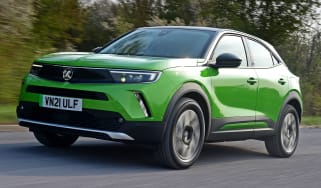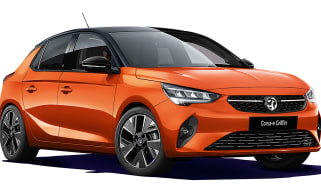Vauxhall Corsa Electric review
The electric Vauxhall Corsa is much more expensive than the petrol version, but it's comfortable, spacious and has a solid range nonetheless
Pros
- Practical five-door body
- Good real-world range
- Drives quite well
Cons
- No cable storage
- Interior quality
- Starting price
| Range | Wallbox charge time | Rapid charge time |
| 221-251 miles | 7hrs 45mins (0-100%, 7.4kW) | 28mins (10-80%, 100kW) |
Vauxhall Corsa Electric verdict
The Vauxhall Corsa Electric is a great small electric car. In fact, once you’ve got over the high purchase price (or have nailed down a good finance deal), it’s hard to argue with the 200-mile real-world range and rock-bottom running costs. The latest Corsa’s ‘Vizor’ face brings it back up-to-date with the rest of the Vauxhall line-up, and we’re pleased to report the refreshed infotainment system is much easier to use than before. While there are ultimately cheaper and more capable models on the market, it’s easy to see the appeal of the electric Corsa – especially if you’re after a small company car.
Range details, specs and alternatives
The Vauxhall Corsa is a strong seller in the UK, and many drivers are already familiar with this well established supermini. The Corsa Electric takes this familiarity and simply adds in a fully electric powertrain, making this a realistic option for those looking to take their first steps into an EV.
Previously called the Vauxhall Corsa-e, the Corsa Electric is closely related to the Peugeot E-208, with which it shares its platform and myriad parts. Also mechanically similar is the larger, but not much more expensive, Vauxhall Mokka Electric.
Power for the Corsa Electric comes courtesy of a 50kWh or 51kWh battery pack. That tiny 1kWh difference does have a bit of an impact on the WLTP combined battery range, though, because it bumps the figure up from 221 miles to 251 miles. The larger battery also comes with a more powerful 154bhp motor, although the 50kW cars aren’t too far behind, with 134bhp on tap.
Despite the disparity in power output, both models officially take 8.2 seconds to reach 62mph from a standstill and they also share the same 93mph top speed. No matter which model you go for, all versions of the Corsa Electric get standard 100kW rapid charging, enabling a 10-80% top-up in around half an hour.
Unfortunately, the Corsa Electric isn't quite as affordable as its combustion-powered counterpart, with the entry-level model now starting at just over £29,000 and the price rising to over £34,000 for the top-spec big-battery version. In comparison, the petrol line-up kicks off from under £20,000.
When it comes to rivals, the larger, more practical MG4 EV costs less than £27,000, while the Vauxhall's Peugeot E-208 sibling starts from just shy of £30,000. The entry-level variant of the larger Mokka Electric SUV, meanwhile, costs less than £500 more than a base Corsa Electric.
The Corsa Electric line-up currently consists of three trims: Design, GS and Ultimate. As you’d hope for, given the high list price, even basic cars come well equipped, with 16-inch alloy wheels, LED lights, climate control, rear parking sensors and a seven-inch touchscreen with Apple CarPlay and Android Auto.
Opting for GS trim gives you the option of the newer, 51kWh powertrain and expands the kit list further with a larger 10-inch screen, sportier seats, a dual-tone roof and a reversing camera. The range-topping Ultimate model gets heated massage seats and matrix-LED headlights, but will cost you at least £33,000.
Although the cash prices are a bit steep, there have been some very tempting finance and leasing deals to be found through Vauxhall itself as well as various brokers. We recommend shopping around for a deal if you fancy having a Corsa Electric on your driveway.

